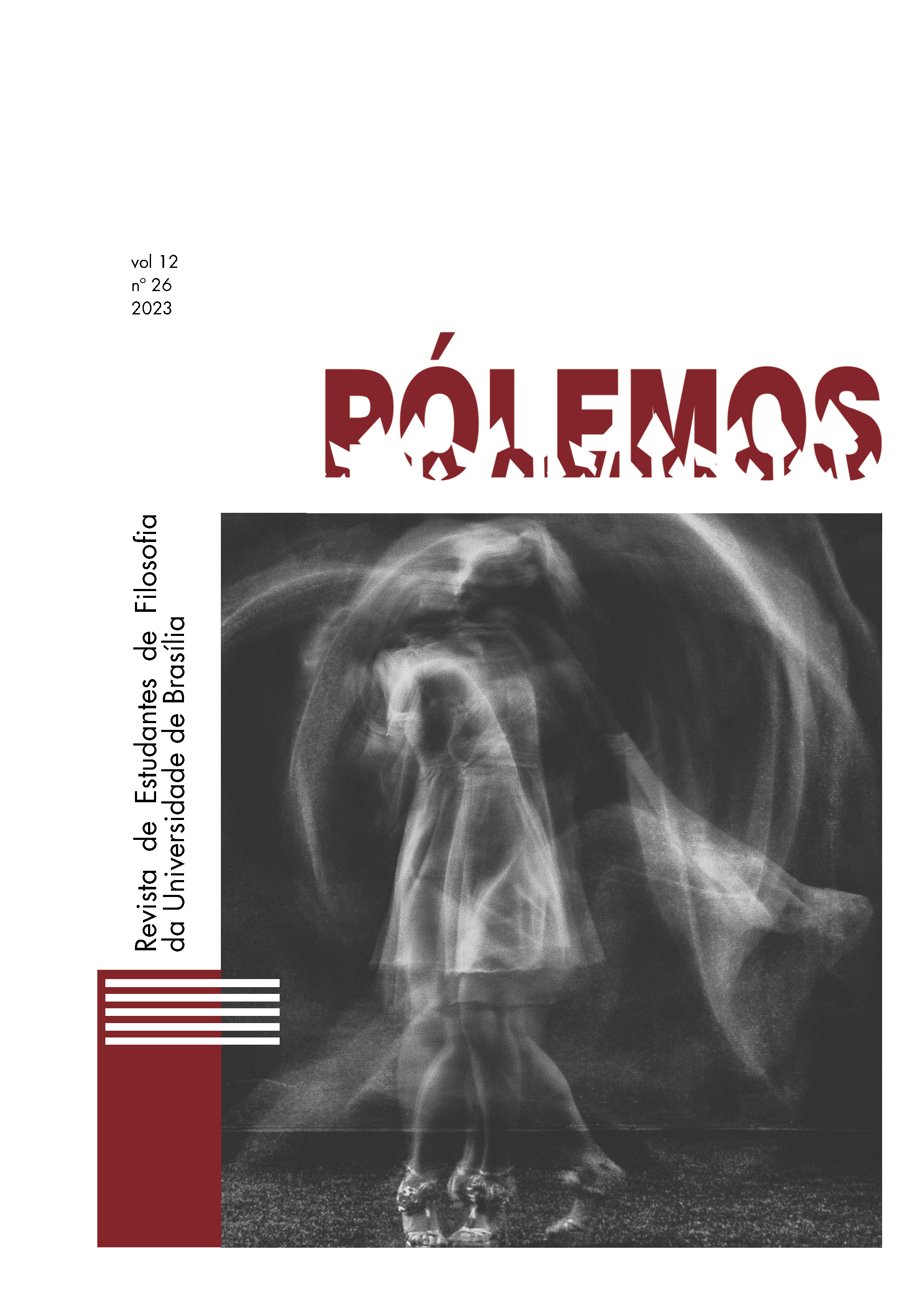MORALITY AND PASSIONS
the nature of the humean theory
DOI:
https://doi.org/10.26512/pl.v12i26.47945Keywords:
Morality. Passions. David Hume.Abstract
This article aims to understand the sentimental aspect that exerts a significant influence on our moral approval based on David Hume's research, seeking to further comprehend its nature in order to establish its importance for the discussion of morality from the author's perspective. The issue arises from the fact that, knowing to what extent sympathy implies morality, it is possible to analyze its impacts on the realm of moral decision-making, potentially being effectively applied to issues of applied ethics. Therefore, the need for this research is justified in terms of understanding the nature of emotions and sympathy concerning morality and their relevance to the discussion of applied ethics. The research method used was qualitative. The conclusion was reached through an intersubjectivist approach, meaning that Hume intends for universality in his theory without disregarding individuals' personal subjectivity.
Downloads
References
BLOOM, P. Against Empathy - Boston Review. Tradução de Flavio Williges – UFSM. Disponível em: https://www.academia.edu/32057531/Paul_Bloom_Contra_a_empatia Acesso em: 22 dez. 2022.
BROAD, C. D. Five Types of Ethical Theory. Londres: Kegan Paul, 1948.
CAPALDI, Nicholas. Hume’s Place in Moral Philosophy. New York: Peter Lang, 1989.
CONTE, J. Sobre a natureza da teoria moral de Hume. Kriterion, Belo Horizonte, nº 113, Jun/2006, p. 131-146.
COHON, Rachel. Hume's Moral Philosophy. The Stanford Encyclopedia of Philosophy. Edição de Outono de 2018. Disponível em: https://plato.stanford.edu/archives/fall2018/entries/hume-moral/ Acesso em: 30 Out. 2020.
FOGELIN, Robert J. Hume’s Skepticism in the Treatise of Human Nature. Londres: Routledge & Kegan Paul, 1985.
HUME, D. Enquiry Concerning the Principles of Morals. Oxford: ed. Selby-Bigge, 1894, p.173. Tradução por José Oscar de Almeida Marques, apresentada no volume Investigações sobre o Entendimento Humano e Sobre os Princípios da Moral, Ed. Unesp, São Paulo, 2003.
HUME, D. Four Dissertations. A Dissertation on the passions. Edited by John Immerwahr. Facsimile da edição de 1757 publicada por A. Millar, Thoemmes Press, 1995); Tradução de Jaimir Conte. Revista princípios, v.18, n.29, jan./jun. 2011, p. 371-399, Natal.
HUME, D. Hume’s Moral Ontology. Hume Studies, Ontário, v. 11, n. 2, p. 189-214, 1985.
HUME, D. Investigações sobre o entendimento humano e sobre os princípios da moral. Traduzido por José Oscar de Almeida Marques. São Paulo, Unesp, 2004.
HUME, D. Investigações sobre o entendimento humano. Traduzido por Leonel Vallandro. Edição Os Pensadores. São Paulo, Abril S.A. Cultural e Industrial, 1973.
HUME, D. Tratado da Natureza Humana. Tradução de Déborah Danowski. 2ª Edição, Editora Unesp, 2000.
HUME, David. Tratado da natureza humana. Tradução de Serafim da Silva Fontes, 4a Edição, Fundação Calouste Gulbenkian, Lisboa. ISBN 978-972-31-0936-8, 2015.
HUME, D. Tratado da natureza humana. São Paulo: Editora UNESP, 2001.
HUME, David. Uma investigação sobre os princípios da moral. Tradução de José Oscar de Almeida Marques. Editora da Unicamp, Campinas. 1995.
MACKIE, J. L. Hume’s Moral Theory, London: Routledge, 1980.
MACKIE, J. L. Ethics: Inventing Right and Wrong. Londres: Penguin, 1977.
NORTON, David Fate. Hume’s Moral Ontology. Hume Studies, Ontário, v. 11, n. 2, p. 189-214, 1985.
SILVA, Jean Pedro Malavolta e. Simpatia e sentimentos morais em David Hume. Disponível em: http://hdl.handle.net/10183/156341 Acesso em: 07 fev 2023.
TAYLOR, Jaqueline. “Virtue and the Evaluation of Character” (in: The Blackwell Guide to Hume’s Treatise, Oxford, Blackwell Publishing Ltd, 2006).
Downloads
Published
Issue
Section
License
Copyright (c) 2023 PÓLEMOS – Revista de Estudantes de Filosofia da Universidade de Brasília

This work is licensed under a Creative Commons Attribution-NonCommercial-NoDerivatives 4.0 International License.
Todos os trabalhos que forem aceitos para publicação, após o devido processo avaliativo, serão publicados sob uma licença Creative Commons, na modalidade Attribution-NonCommercial-NoDerivatives 4.0 International Public License (CC BY-NC-ND 4.0). Esta licença permite que qualquer pessoa copie e distribua a obra total e derivadas criadas a partir dela, desde que seja dado crédito (atribuição) ao autor / Ã autora / aos autores / às autoras.


